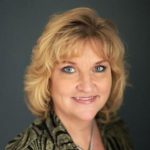Profiles in Recovery

Terri Schaffner
Schaffner watched in distress from her upscale Missouri home, as years of doing and dealing methamphetamine caught up with her.
“When the task force kicked in the door of my condo and ran over my son in the hallway, I was done,” she recalls. “After running from my charges for a year, I finally decided to turn myself in and drove 600 miles to do it. I knew I would have to take care of those past mistakes in order to move forward.”
Schaffner completed her third prison stay and gave up meth for good. “I discovered how hard it is to break the cycle without help, so I put my heart into obtaining my Master’s Degree to become a Licensed Addiction Counselor and Licensed Professional Counselor,” she says. Today, Schaffner runs a large treatment center in Shreveport, Louisiana, and leads a nonprofit, Active Recovery Foundation, Inc., which funds services such as adult re-entry programs, recovery homes, support groups and job readiness workshops.
PreviousNextDay Job:
CEO and Clinical Director of Active Recovery in Shreveport, Louisiana; founder of Active Recovery Foundation, Inc.
The fallout from my addiction:
I spent 23 years in the drug-infested world of IV meth use. Over the course of my life, I had gone to prison three times for distribution/manufacturing of meth . . . my kids had to move three states away with my mother, and they grew up with deep-seated resentments. I’m still dealing with the aftermath of those resentments as they are now grown with children of their own.
Initially, I went to college for a medical profession to appease my mother, but lost the opportunity to work in the medical field because of my felonies.
Favorite recovery quote:
“I can do all things through Christ who strengthens me” ~ Philippians 4:13
What worked for me:
I didn’t care for 12-step programs . . . I’d had treatment in the past, but it never ‘stuck.’ I realize now that every time I went into a rehab program, I gleaned something good out of it, even though I typically relapsed afterward.
My parole officer had always forced me to attend AA meetings and I just never got anything out of them. I later decided that I could start a different kind of addiction program that centers on teaching 10 core concepts: empathy, spirituality, gratitude, honesty, commitment, integrity, respect, initiative, communication and responsibility. I came about these concepts one day after thinking about all of the things I had “lost along the way,” and started to write them down, eventually creating what is now our treatment workbook.
My life today:
I spend at least 15 minutes each morning outside in meditation and gratitude. I use my drive time to process my day and listen to soothing music before I get to work, where I talk to clients about their drug screens if they are still positive. Then I facilitate three hours of group time. After work, I meet my husband for dinner at least once a week. I run an evening group as well.
I’m glad to finally have some time to go to yoga and take an oil-painting class. Before arriving home, I stop and visit my grandchildren, who live nearby. The evenings are spent reading or enjoying our pool. At the moment I am having an Art Studio built on our property to that I can oil-paint and create pottery from throwing clay. My husband and I both ride motorcycles, and on weekends we are often riding around several lakes, trying out different restaurants along the way – especially during crawfish season!
On my bucket list:
My husband and I want to travel across America, visiting many of the State Parks across the land in a motorhome.
Stigma I faced:
Because I had four felonies and three prison stays, I knew the odds were stacked against me. My son was born while I was in prison, and the family friend who took him on a temporary basis had always wanted a “prison baby;” that’s the label the local church gave him. It was humiliating.
Once I obtained my Master’s Degree, I still had to go through the process of trying to get a full pardon twice in order to get my LPC license. I decided that the only way to get a decent job is to create it myself. I went against all odds, got my Master’s Degree at night while working a full time job and raising teenagers. Today, I own two gorgeous facilities and help over 300 clients each month find recovery.
On finding purpose:
Every day that I come to work I am reminded of my own addiction, as my clients go through the struggle. I am able to see the transformation from Day One to 8 weeks later, when they successfully graduate Phase 1.
I have found my purpose, and would not trade anything in the world for it. God provided the tools and the timing; I just walked it down.
SHED THE STIGMA:
If you’re a person in long-term recovery who wants to share your insights, please contact us at [email protected].